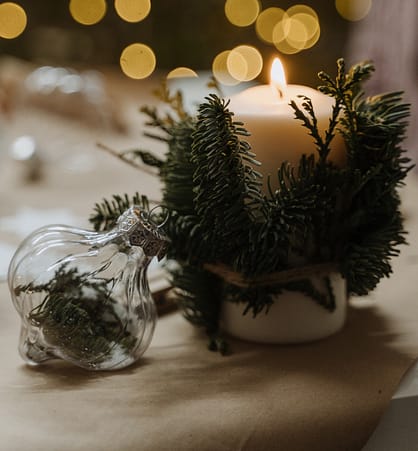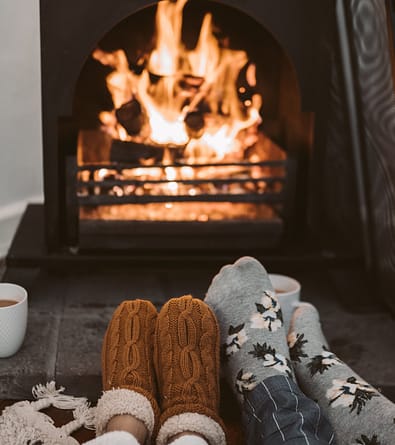This post may contain affiliate links. For more information please read my disclaimer.

The Nordics are consistently some of the happiest countries in the world and hygge and lagom, two concepts integral to Danish and Swedish culture respectively, have become increasingly popular around the globe as notions as simple approaches for a happier and healthier life. Here, I’ll distil some of the key ideas from these practices so you too can live like some of the happiest people in the world.
Hygge (from Denmark)
Imagine yourself on a cold winter’s night, wrapped up in your favourite blanket, thick woolly socks on and hands clasped around a warm drink, ensconced in an armchair by the fire. Think of that warm fuzzy feeling. That feeling is the essence of hygge.
Pronounced ‘hoo-ga’, hygge is the Danish concept and lifestyle trend that’s all about feeling cosy contentment and slowing down by enjoying the simple things in life.
It is so important to Danish culture that it’s described as ‘what freedom is to Americans. . . hygge is to Danes’ in The Little Book of Hygge. It must have something to it as Denmark consistently places as one of the happiest countries on earth according to the world happiness report.
Here are some ideas to make your life more hygge:
- Wrap yourself in blankets or get some thick socks and an oversized hoodie (or a combined solution with the oversized hoodie blanket).
- Light some candles around your home.
- Spend some time reading your favourite books.
- Play board games/card games with family and friends.
- Eat things you love – that means comfort foods, sweets and hot drinks. While restaurants have quite a hygge atmosphere there’s a special joy in baking or cooking together. Bring out grandma’s favourite recipes!

It’s easy to get caught up in the business of life and working towards our goals. But it’s important to take time out to create ‘that feeling’ brought about from hygge activities.
So don’t hesitate to invest in some warm attire, relax, indulge, spend time with the people you love and appreciate the things you have.
The important thing to take away is that hygge isn’t necessarily about buying things or doing activities. It’s about appreciating the present moment and the good times. It’s bringing about that cosy feeling.
Lagom (from Sweden)
From another part of the happy Nordics, we have the concept of lagom. If hygge is about indulging, lagom is about balance.
Moderation is often called a moral virtue and its importance has been cited across the millennia from the words of Aristotle to the principles of Buddhism. It is central to the Swedish concept of lagom which loosely translates to “not too little, not too much – just right” and in Sweden represents the art of living a balanced, slower, fuss-free life.
While this is a simplified version of what lagom probably means to Swedes, it’s a beacon we can use to guide our thoughts and actions. Lagom encompasses thinking more about what’s best for the group than for the individual. This means living more sustainably, finding balance in work and life, not being overly ostentatious, and generally just being nice.

It’s true that these two countries, and the overperforming Nordics in general, are wealthy, safe, and have a host of other qualities supporting high levels of happiness. This is partially due to this very attitude of consideration for the many over the few.
Regardless, the concepts employed by hygge and lagom can be adopted by others around the world. Design your surroundings for comfort. Find the activities that bring you joy. Indulge a little with hygge but find balance with lagom.
Slow things down and enjoy whatever you’re doing in each moment. While all of this may seem obvious (cosying up to a fireplace on a cold night obviously feels amazing) consciously taking time to create these moments and to appreciate the feeling they create is important.


What a beautiful concept! Much needed in today’s world. Really enjoy reading your posts
Thank you!